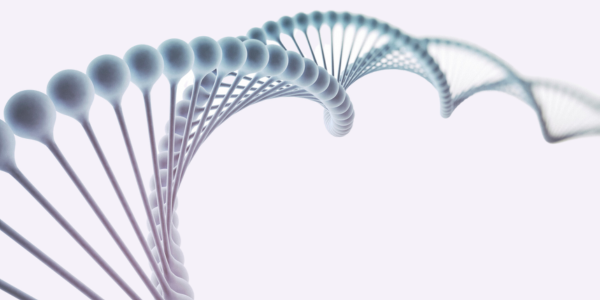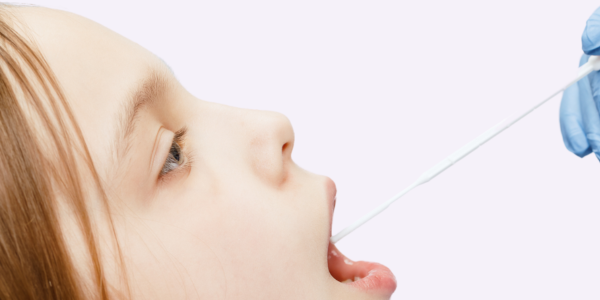Relationship Testing Information

DNA testing is a scientific process which can positively identify relationships between people. Most commonly it is used to establish if a man is the true biological father of a child. DNA paternity testing is also often referred to simply as a DNA test, a paternity test or DNA testing. Cellmark has been providing a confidential, conclusive, court approved DNA testing service for more than three decades.
What do you need to consider before taking a DNA relationship test?
When you choose Cellmark you can be sure your test will be carried out with the care, accuracy and precision it deserves. Every test is carried out twice using the latest DNA profiling technology to provide certainty, with accurate, high quality and reliable relationship analysis.
Accredited UK Laboratories
All our DNA testing is carried out in our own accredited laboratories in the UK. The Ministry of Justice maintains a short list of companies who are accredited to carry out parentage tests. Being accredited by the Ministry of Justice means that Cellmark abides by the standards originally set down by the Dept. of Health's voluntary code of Practice and the subsequent Human Genetics Commission's 'Common Framework of Principles' and the Human Tissue Act.
All reputable DNA testing services should abide by the Codes of Practice set out in these documents. Cellmark is also certified to International Quality Standards ISO 17025 (for laboratory testing services) and ISO 27001 (for the robustness of our information security).
Independent Sampling
Samplers must not be related to the sample giver, nor have any financial or personal interest in the outcome of the test. This can be either a medically qualified practitioner or an individual trained by the testing organisation. Cellmark offers a nationwide sampling service and provides all samplers with clear instructions. In addition to providing details of how the sample should be collected, these instructions cover the need to take into account the views of the child where appropriate, the wider welfare concerns of the child, and the need to ensure that proper measures have been taken to obtain legal consent.
Legal Consent
Under the Human Tissue Act 2004, consent is legally required for a biological sample to be DNA tested to determine paternity or any other relationship. Written, informed consent must be provided for each adult sample and for each sample taken from a child. Failure to ensure this can open yourself up to the offence of "DNA theft" which is punishable by a prison sentence of up to 3 years and/or a fine of £3,000.
Someone with Parental Responsibility for a child must provide written consent. An unmarried father who is not registered on the birth certificate does not have parental responsibility and therefore cannot give consent for the child to be tested. Without the mother's consent to testing he would have to go to court to seek a Parental Responsibility Order to progress the issue further
Chain of Custody
As a general guide, a court will seek assurances that a paternity test, the findings of which will be used as evidence, has been conducted properly with a clear audit trail. This is required to show that the correct people provided the samples; that those samples reached the testing laboratory; that the testing laboratory was competent to carry out the tests; and that the results relating to the samples then reached the court.
Samples are sent to Cellmark’s Abingdon UK laboratory in tamper evident bags. On receipt, the bag is examined to ensure that the samples have arrived intact and the details on both the documents and samples have been completed correctly. Once all the samples that are to be tested have been received and have passed our checks they are passed to the Laboratory for DNA testing.
How do you arrange a DNA relationship test?
You can complete your registration using our online service or by calling Cellmark's Customer Services team. Cellmark will assist with arranging a convenient time for an appointment for the DNA samples to be taken using:
- Our dedicated sampling service
- Your own GP
- A GP from the list we supply
If you use a GP you should allow at least two days for Cellmark to deliver the DNA sampling kit to the chosen doctor(s). Each person being sampled will also need two passport-sized photographs or photo ID with them to confirm their identity. However, if you elect to use Cellmark's sampling service they will have kits and forms and no photographs are required as they will be taken digitally.
What relationships can be analysed with DNA testing?
DNA testing can be used to assess a range of relationships such as maternity, siblings (brothers and sisters), aunt/uncle (avuncular) or grand-parentage, either to confirm that particular relationship, or in some cases to determine a child’s parentage when the parents of the child aren’t available for testing.
How much does a DNA test cost?
Our standard testing charges are £324 +VAT for up to 3 individuals (e.g. Mother, Father and Child) and then £133 +VAT per additional person. If you are testing for immigration purposes our standard charges are £396 + VAT for up to 3 individuals and then £133 +VAT per additional person. To keep things simple our prices are the same regardless of the type of relationship being established.
Our testing prices include the following - as standard:
- All sampling kits and the cost of sending them to UK sampling locations.
- Pre-paid return envelopes to safely transport the samples to our laboratory.
- The cost of testing the samples once they have been received at our laboratory.
- Our standard 'Next Day' turn around time.
- The cost of producing and delivering the final test report.
- Our advice service for the duration of the case accessible via email, Freephone and our web Chat service.
Please note, in addition to the DNA testing cost, you will also need to pay to have the DNA samples taken. Our customer services team can provide full details on how the sampling process works and the costs involved.
How does DNA relationship testing work?
A simple mouth swab is used to collect a sample from an individuals cheek. The samples are then sent to our laboratory where a small section is taken by a scientist carrying out your DNA test. DNA is extracted from the sample and a special enzyme is used to copy the genetic code at the relevant regions in the DNA.
Testing works by detecting certain parts or ‘markers’ in the DNA molecule that are known to vary greatly between unrelated people. Our tests compare the DNA at a number of these markers to determine if people are related. The process is called Short Tandem Repeat (STR) profiling. STR profiling is a very sensitive DNA testing procedure.
Each DNA profile is analysed using the latest specialised software. The software will assign a designation to the DNA markers at each test. The DNA Profile will consist of a minimum of 22 STR tests and a test to determine biological sex. The DNA profiles are assessed for quality by our experienced reporting scientists. If a complete DNA profile is obtained i.e. a result is observed at each test, then the sample has passed.
DNA profiles from the individuals in a case are compared with each other to identify any matching DNA markers between them. A statistical analysis is carried out to determine the likelihood of a biological relationship such as paternity. The analysis involves determining the number of matching DNA markers and their frequency in the population. The details of the individuals tested and the results of their DNA test are entered onto the final DNA report.
Cellmark can provide the DNA report as either a paper copy which is prepared on embossed paper or an electronic copy which can be sent by e-mail.
Where can I get independent advice and guidance?
The decision to have a DNA test is one faced by thousands of people every year, often in complicated emotional circumstances. Cellmark is committed to ensuring that all parties have access to independent advice and guidance and the following links may help you in making your decision to proceed (or not to proceed) with DNA testing.
England and Wales
Get a DNA test
CAFCASS 0300 456 4000
Child Maintenance 0800 988 0988
Citizens Advice 03444 111 444
Families Need Fathers 0300 0300 363
Gingerbread 0808 802 0925
Relate 0300 100 1234
Scotland
Family Matters
Children in Scotland 0131 313 2322
One Parent Families Scotland 0808 801 0323
Scottish Child Law Centre 0131 667 6333
Ireland
Citizens Information 0761 07 400
Child and Family Agency 01 7718500
One Family 1 662 9212
Treior 1890 252 084
Please consider that choosing to have a 'peace of mind' or 'curiosity' DNA test may not be the cheapest option - if you subsequently end up having to go to court to resolve the issue you will need to undergo another test - this time a court approved test - so careful consideration of your options is sensible. We recommend that you talk to a third party such as the Citizens Advice Bureau, your GP or a family friend.



